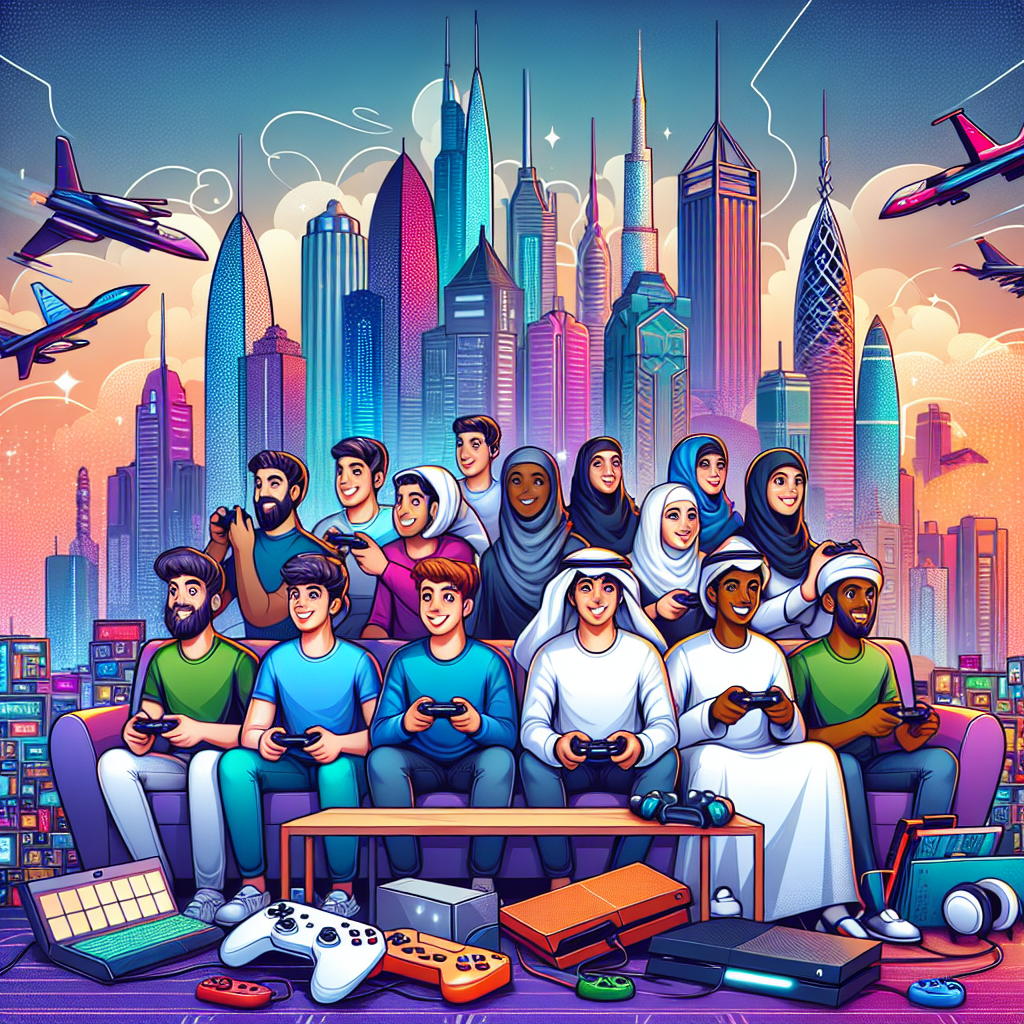Leveling Up: The Impact of Gaming on Youth Culture in the Middle East
Introduction
In recent years, the Middle East has witnessed a dramatic surge in the popularity of video gaming, transforming it into a significant cultural phenomenon among the youth. This rapidly growing industry, which encompasses everything from mobile gaming to esports, has not only provided entertainment but also shaped social norms, fostered communities, and influenced identity among the region’s younger generations. As technology continues to advance and internet access becomes more pervasive, gaming’s impact on youth in the Middle East is profound and far-reaching.
Gaming: A Universal Language
One of the most striking aspects of gaming is its ability to bridge cultural and linguistic divides. In the Middle East, where historical narratives and conflicts may sometimes create barriers, gaming acts as a universal language that fosters connection among youth from diverse backgrounds. Multiplayer online games, in particular, encourage collaboration and competition, providing a platform for young people to engage with one another regardless of their geographical or socio-economic differences.
As young gamers form friendships through online interactions, they create a sense of community that transcends traditional boundaries. This phenomenon is particularly important in a region often characterized by political tensions, as it helps to cultivate empathy and understanding among peers who might otherwise remain disconnected.
Economic Opportunities
The gaming industry is not just shaping social dynamics; it is also emerging as a significant economic force in the Middle East. With several countries investing in tech infrastructure and nurturing talent in game development, the region is poised to become a hub for the gaming sector. Governments are recognizing the potential for job creation and entrepreneurship associated with the gaming industry, leading to the establishment of various initiatives and scholarships aimed at encouraging young people to pursue careers in technology and game development.
Esports, in particular, has gained substantial traction in the Middle East, with professional leagues emerging and attracting significant sponsorships. This shift has created new avenues for young talent to thrive, whether as professional gamers, streamers, or content creators. The rise of esports is also encouraging a culture of teamwork and strategic thinking, enabling youth to develop skills that are valuable both inside and outside the gaming arena.
Cultural Expression and Identity
Gaming has become a canvas for cultural expression among Middle Eastern youth. With games increasingly incorporating local narratives, folklore, and aesthetics, they offer players a chance to see their identities and stories represented on a global platform. This is particularly empowering in regions where young people may feel marginalized or underrepresented.
Moreover, gaming can serve as a medium for tackling social issues and sparking conversations about gender, race, and identity. Many games now feature strong female protagonists and focus on themes that resonate with local audiences, fostering discussions around representation and inclusivity. This shift not only validates the experiences of youth but also encourages them to reflect on their societal roles and aspirations.
Challenges and Considerations
While the impact of gaming on youth culture in the Middle East is largely positive, it is not without its challenges. Concerns surrounding gaming addiction, cyberbullying, and exposure to inappropriate content have risen alongside the popularity of gaming. Parents and educators are increasingly grappling with the necessity of guidance and regulation to ensure a healthy balance between gaming and other aspects of life.
Additionally, there are issues of access and equity; while urban areas may enjoy greater access to high-speed internet and gaming facilities, rural regions often lag behind. Cultivating inclusivity within the gaming sphere will be crucial to ensure that all young people, regardless of their background, can benefit from this cultural craze.
Conclusion
As gaming continues to evolve in the Middle East, its impact on youth culture is undeniable. From fostering connections between diverse communities to creating economic opportunities and encouraging cultural expression, the gaming landscape is reshaping what it means to be a young person in the region. As industry stakeholders, parents, and educators navigate the complexities of this cultural shift, leveraging the positive aspects of gaming while addressing its challenges will be essential in harnessing its full potential for the youth of the Middle East. As they level up in their gaming experiences, young people are not only enhancing their skills and social networks but are also playing a crucial role in redefining their cultural identities in an increasingly interconnected world.




